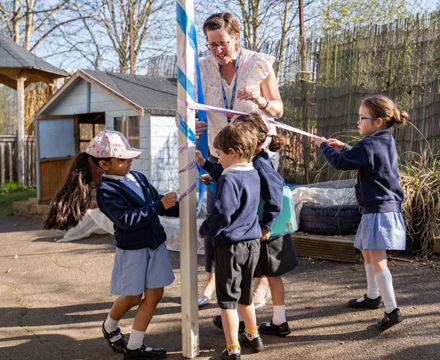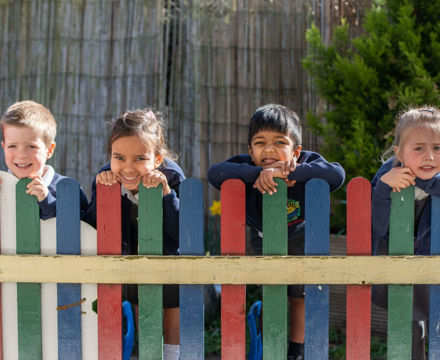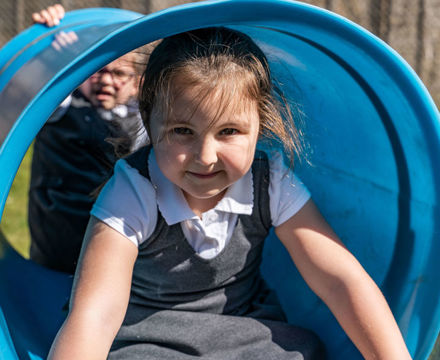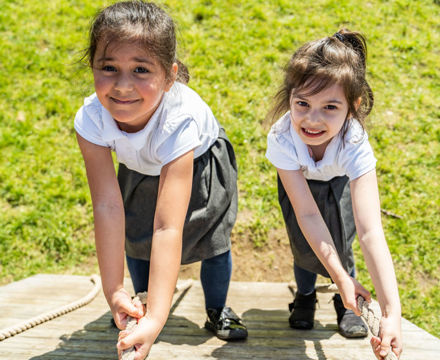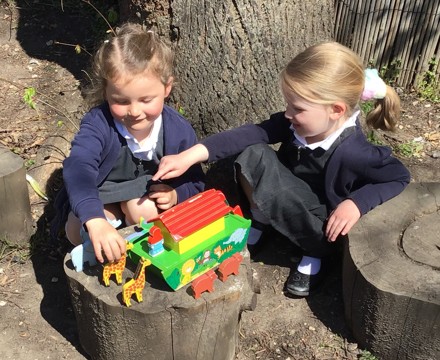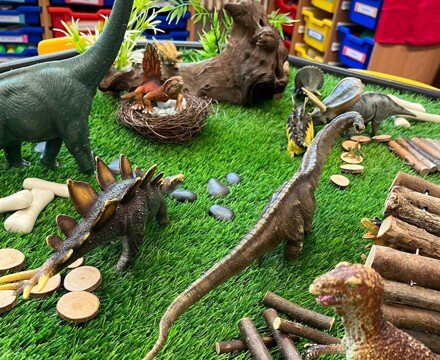- Home
- Curriculum
- About Our Reception
Spring Term 2025![]()
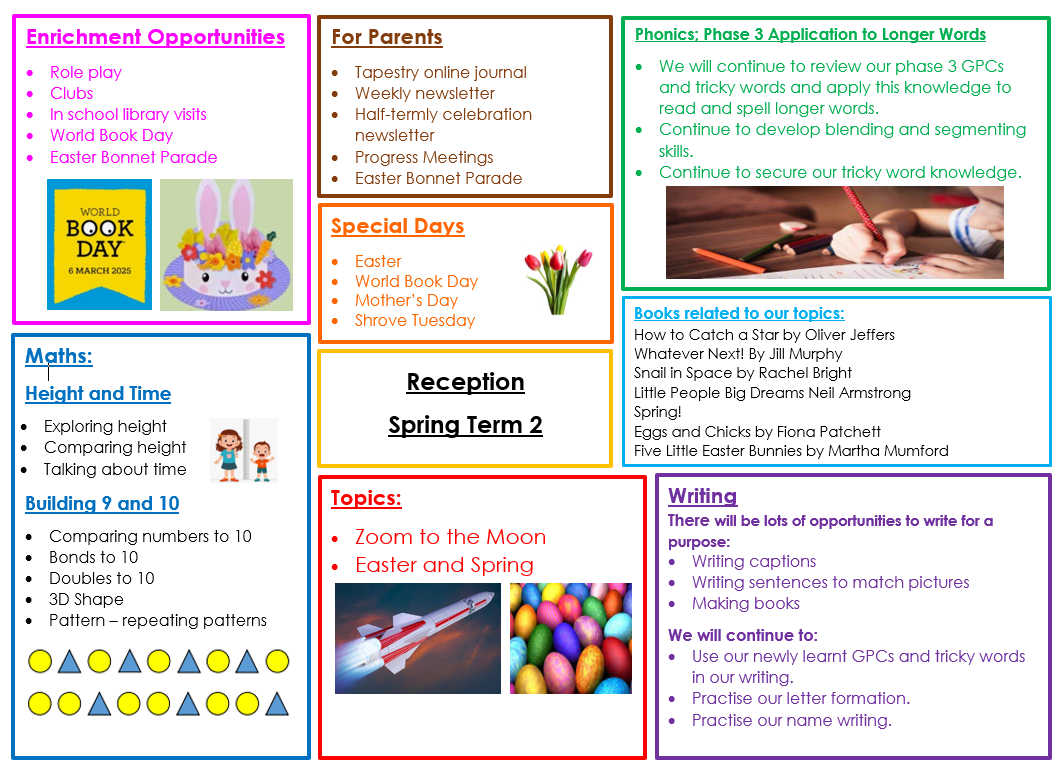
EYFS Concept Cat Vocabulary Overview
Reception information slides for September 2024
Reception maths workshop slides from October 2023
Support Your Child with Reading and Phonics slides from September 2024
Downloadable Phase 2 and 3 Grapheme mat from Little Wandle
Children in Reception follow the Early Years Foundation Stage Curriculum. There are seven areas of learning:
The Prime Areas (these are particularly important for your child's development and future learning) –
• Personal, Social and Emotional Development (PSED) – Self Regulation, Managing Self, Building Relationships
• Communication and Language (CL) – Listening, Attention and Understanding, Speaking
• Physical Development (PD) – Gross Motor Skills, Fine Motor Skills
The Specific Areas (the prime areas are strengthened and applied through these areas) –
• Literacy - Comprehension, Word Reading, Comprehension
• Mathematics – Number, Numerical Patterns
• Understanding The World – Past and Present, People, Culture and Communities, The Natural World
• Expressive Arts and Design – Creating with Materials, Being Imaginative and Expressive
The EYFS framework identifies the essential role of play in your child’s development. It is through both child-led play and play guided by an adult that your child will develop confidence and relationships with others. Through play, EYFS practitioners will help your child to extend their vocabulary and develop their communication skills. The EYFS framework identifies three characteristics of effective teaching and learning:
- Playing and Exploring
- Active Learning
- Creating and Thinking Critically
A greater focus on teaching specific skills will occur as your child progresses through their reception year, which will help them to prepare for year one.
We carefully assess children during their time with us, and regularly review their progress to ensure that our planned activities are meeting their needs. We use Tapestry to capture children’s individual achievements; these will be shared with parents and carers. West Ewell Primary School and Nursery highly values the partnership with families and we encourage notes about children’s achievements outside the school environment.
To find out more about our curriculum, please click on the following link:
Our EYFS vision and curriculum
Please click on the link below for information about the Early Learning Goals that we are working towards by the end of the year
Top Tips for Reception Parents
- Use a variety of creative tools (scissors, paper, thread/string, tweezers, chalk, pens, playdough) to help develop fine motor skills.
- Read to your child as often as possible – any time, any place, anywhere. Do shared reading of their school books (Reception) but also do remember to keep a special time when you can cuddle up and share stories that the children really love. The more a child can see that you enjoy reading and see it as a valuable skill, the more likely your child will want to read and see the importance of reading in their learning.
- Play games with your child. E.g. I-spy, connect 4, hangman.
- Allow your child to be as active and physical as possible. E.g. trips to the park, playing football in the garden, running races, gymnastics/ dance clubs or going swimming.
- Maths should be learnt in a practical manner. E.g. counting knives and forks as you lay the table, recognising numbers as you walk down the street, counting the cars which go past your house, counting down from 10 before starting a race, using the words more/less when making comparisons of amounts of sweets in a jar.
- Encourage your child to become increasingly more independent. E.g. Being able to dress/undress, put their coat on, do up their buttons, tidying up after themselves and finding things for themselves.
- Listen to and spend quality time with your child. Children develop their spoken language before being able to read or write. Encourage your child to take an interest in the world around them by asking questions using how, when, where, who and why.
- Allow your child to interact with other children – encourage play dates. Social communication is one of the main areas of learning assessed in foundation stage. Encourage your child to share, play fairly and think of others feelings.
- School can be tiring! Please listen to your child’s needs and ensure that your child gets enough sleep.
Homework
You can read our EYFS Homework Policy here.
Our approach to homework is one where we believe that homework should complement our learning in school and not be a stressful experience at home.
Parents are key educators in their children’s lives and have a critical influence over the success of children’s learning. We suggest that in the early stages of a child’s school life at least 10 minutes is set aside each day to talk to your child about their learning, to read with your child, play games and develop their self-help skills.
As your child moves through the Primary phase they will begin to have more formal tasks such as learning multiplication tables and spellings, projects; and be expected to work for longer periods and with increasing independence.
Homework can also be a walk in the park, a swimming trip, baking, an art activity, visiting family.


